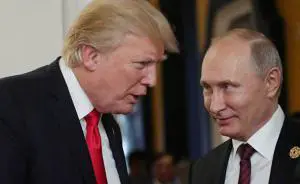Russian ambassadors have been summoned to several European foreign ministries amid reports of imminent diplomatic expulsions, reports say.
EU leaders agreed last week it was highly likely Russia was behind the poisoning of a Russian ex-spy and his daughter in the UK.
The bloc recalled its envoy to Moscow.
On Monday, Latvia, Lithuania, Estonia and Poland summoned Russian ambassadors to their foreign ministries, officials were reported as saying.
An adviser to Lithuania's foreign minister confirmed to the BBC that the government had summoned the ambassador in Vilnius.
No official reason has so far been given for the diplomatic action but a number of countries across the EU had been expected to expel Russian diplomats this week over the poisoning of former Russian spy Sergei Skripal and his daughter Yulia on 4 March in Salisbury, southern England. The pair remain in a critical but stable condition in hospital.
Official statements from the European governments are expected on Monday afternoon.
Russia has denied outright any connection to the attack.
European Council President Donald Tusk said at the end of an EU summit on Friday that more than one country would expel diplomats "but I don't think that it will be the whole group".
Britain expelled 23 Russian diplomats last week who it said were spies, in the aftermath of the nerve agent attack. Russia has responded with tit-for-tat expulsions.
US President Donald Trump is also weighing whether to expel Russian diplomats, as recommended by the National Security Council, US media report. Kremlin spokesman Dmitry Peskov has threatened to respond in kind.
Speaking during a visit Estonia, British Defence Secretary Gavin Williamson said the support shown for Britain was "itself a defeat for President Putin". Mr Williamson said the Russian president wanted to divide nations but they were, in fact, uniting.
Separately, in Poland, a government official has been detained on suspicion of providing information to Russia about how Warsaw planned to block the Nord Stream 2 gas pipeline from Russia to Germany, which it opposes.
The suspect had been in contact with Russian intelligence agents in Warsaw, state news agency PAP said.
On Friday, French President Emmanuel Macron called the use of the Soviet-era Novichok agent in Salisbury an "attack on European sovereignty".
German Chancellor Angel Merkel said co-ordinated measures among EU countries in response would be "necessary".
On Monday, ambassadors from EU member states were meeting in Brussels to discuss what diplomatic measures individual countries may be prepared to take against Russia.
"Decisions are in the hands of member states, done in a European framework, with decisions at a national level," a spokeswoman for EU foreign affairs chief Federica Mogherini said.
There are divisions among the EU's 28 member states as to how far retaliatory measures against Russia should go.
Austria is among several countries that have already ruled out expelling diplomats.
(BBC)
 简体中文
简体中文

